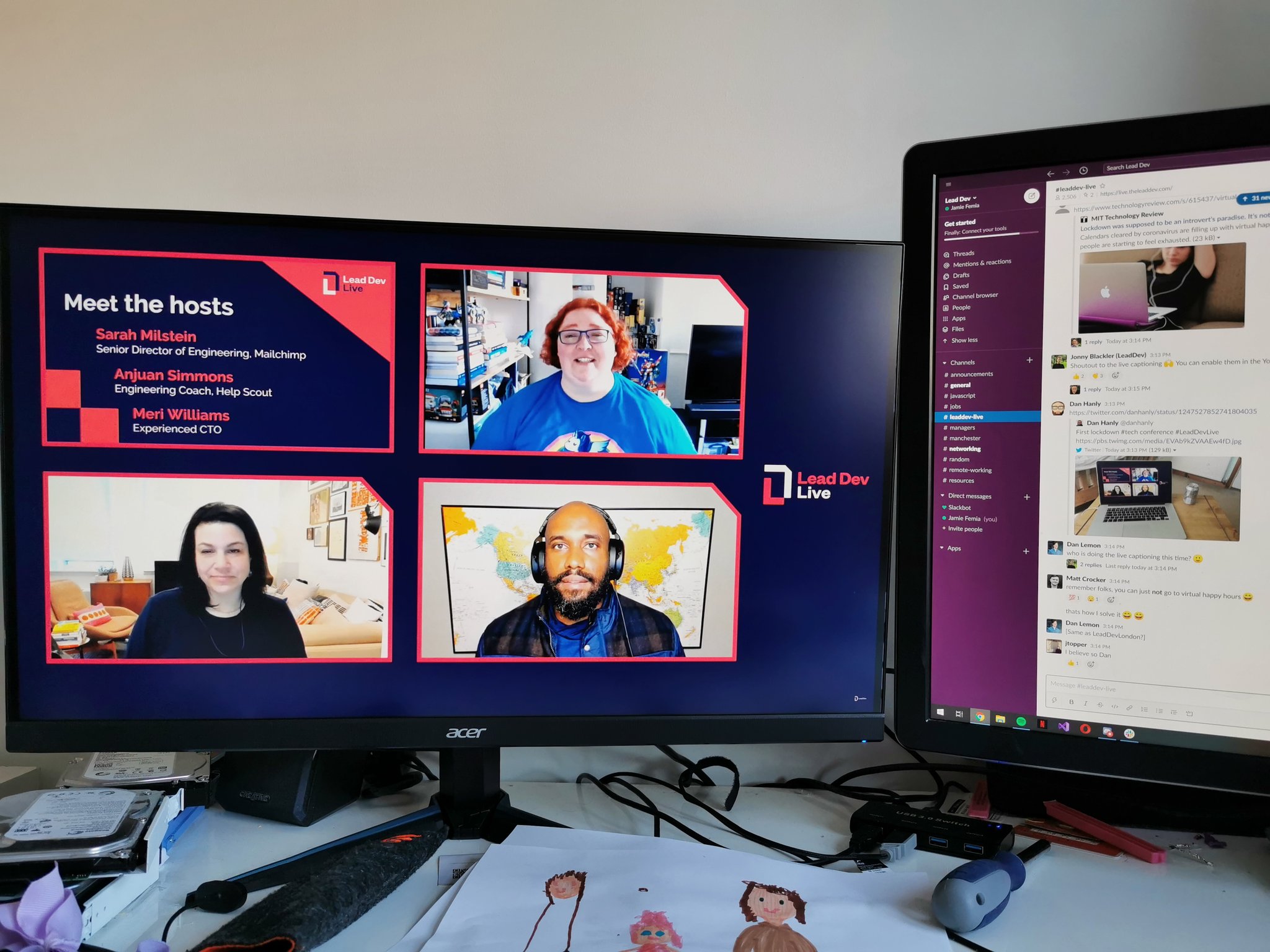Lessons Event Organizers Can Learn from LeadDev Live
I’ve taking part in a series of conferences called The Lead Developer (“LeadDev”) for several years. The conference is normally an in-person event in four cities throughout the year: New York City, London, Berlin, and Austin. The LeadDev New York event was scheduled for early April 2020 was and expected to draw more than 800 attendees. However, in the wake of the rapid global spread of novel coronavirus, the organizers made the difficult decision in early March to cancel the conference in NYC. However, they pivoted to a free online experience called LeadDev Live which drew 10,000 registrations and thousands of people watched online. By some measures, LeadDev Live was more successful than what would have been achieved by the original LeadDev New York event.
Lessons Learned
I was invited to be co-host for LeadDev Live, and I received a behind-the-scenes view of what made the virtual event so successful. These are the lessons that I think other event organizers can apply to making their own pivots to an online experience. Kudos go to White October Events (the organization behind LeadDev events) and AOTV (the company contracted to handle filming and production) for coming up with the ideas behind these lessons!
-
Pre-recorded Talks: The organizers reached out to the presenters who had talks/presentations accepted to LeadDev New York and asked them to record themselves delivering their talks. They also made the same request to the backup speakers. These talks were sent to the video editing team for cleanup and branding. By playing pre-recorded talks during LeadDev Live, the risk of connectivity problems on the part of the speakers was removed.
-
Live Panels: The panels were conducted live, and this allowed the event to be interactive. The panels covered topics relevant to the themes of the conference. There were dedicated Slack channels that handled audience Q&A after each panel.
-
Look and Feel: The event could have easily felt like a disjointed collection of online videos filmed by a few dozen people. However, by editing the videos, coaching the hosts and panelists to adjust their cameras to have similar framing, and other methods, the experience felt like a classic LeadDev event even though it was done in an unprecedented way. I think GDO can dos something similar.
-
Backup Content: The organizers selected videos from past conferences to play in the event of a major technical difficulty. This allowed the audience to view quality content while the technical team scrambled to devise a solution. They also recorded testimonials from attendees at pasts events to provide additional buffer content.
-
On Demand Access: The registrations let the event organizers know to expect an international audience, and the event had to be presented across all time zones. Viewers could watch the sessions live or access the recordings later in an asynchronous manner.
-
Accessibility: LeadDev events always have live captioning, and they utilized the same company to live caption LeadDev Live. This provided support for attendees with impaired hearing as well as those who don’t speak English as their native language.
Summary
I think that the LeadDev Live experience could serve as a model for delivering events online. By reaching out to presenters in advance for pre-recorded versions of their talks, gathering content, and investing in accessibility, much of the spirit of an in-person event can be captured.
Resources
The team that managed the technical implementation of LeadDev Live published a short case study of what they learned.
You can find the talks and panels from LeadDev Live here:
